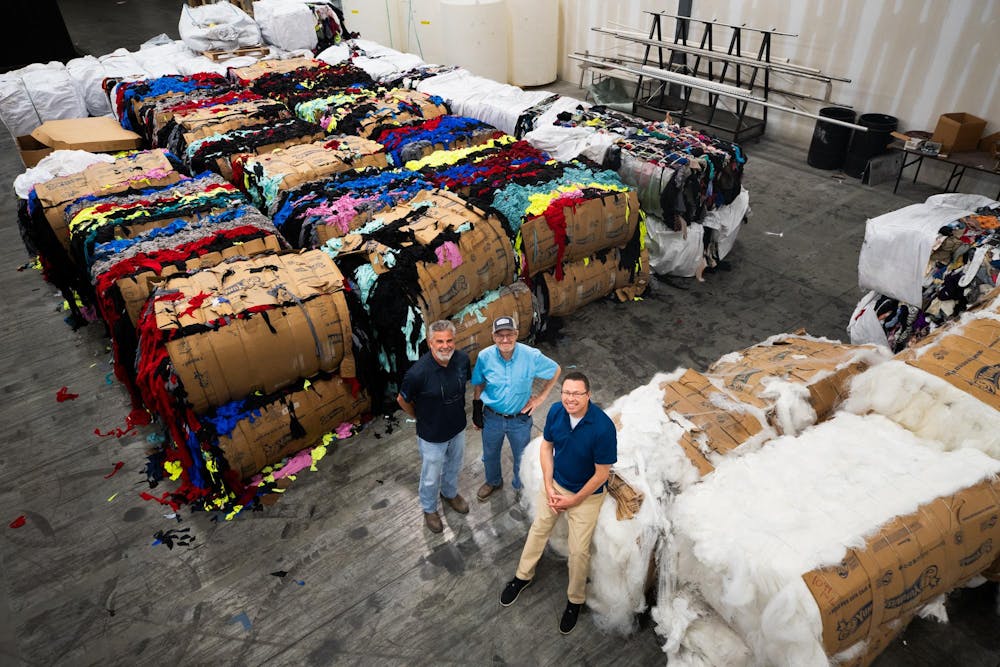Chris Luft, former UNC professor, did not expect his work with fellow former professor Matthew Parrott to turn into the most impactful thing he has ever been involved in.
After all, Luft is a biologist, and Parrott a chemist — they are like cats and dogs, according to Luft, a rare combination of different scientific disciplines.
But Luft put those differences aside and embraced the collaborative spirit — the greatest professional lightbulb moment he’s ever had, he said — and partnered with Parrott to pursue a method of polyester recycling, with the aim of decarbonizing the textile industry.
Their relationship started at UNC as part of professor Joseph DeSimone’s lab, where Parrott’s idea of breaking down polyester into smaller parts began. After some years of professorship at the School of Medicine — while Luft taught at the Eshelman School of Pharmacy — Parrott won an Early Career Award at UNC, allowing him to dive into the idea of breaking down polyester.

Syre recycles polyester from three main industries: automotive, home decor and fashion. The "feed stock" they receive — which includes seatbelts, hospital gowns and more — are shredded into small pieces, then made into condensed pellets, before being converted into a fine powder ready to be recycled into new commodities.
Polyester is a polymer — a chemical with a long chain structure — found in plastics, textiles, and many other materials all around us. By breaking polyester down into single units, it can be recycled, reducing the amount of polyester waste and carbon emissions from its production.
“I basically took that kernel of an idea I had in grad school, I exploited it in my lab, and then all of a sudden, one thing led to another,” Parrott said. “Every reaction worked.”
That kernel snowballed into something big. Parrot brought in Luft, who brought in a team of his own and their startup, Premirr Plastics, was born.

The Syre facility in Garner is pictured on Aug. 27, 2024. The machine, which was engineered by Donald B. Shuping in 2017, is able to recycle not just polyester, but also the solvent and heat it uses to run. In doing so, this particular method is much more sustainable than other polyester recycling methods, as it is able to reduce energy costs by 80%.




